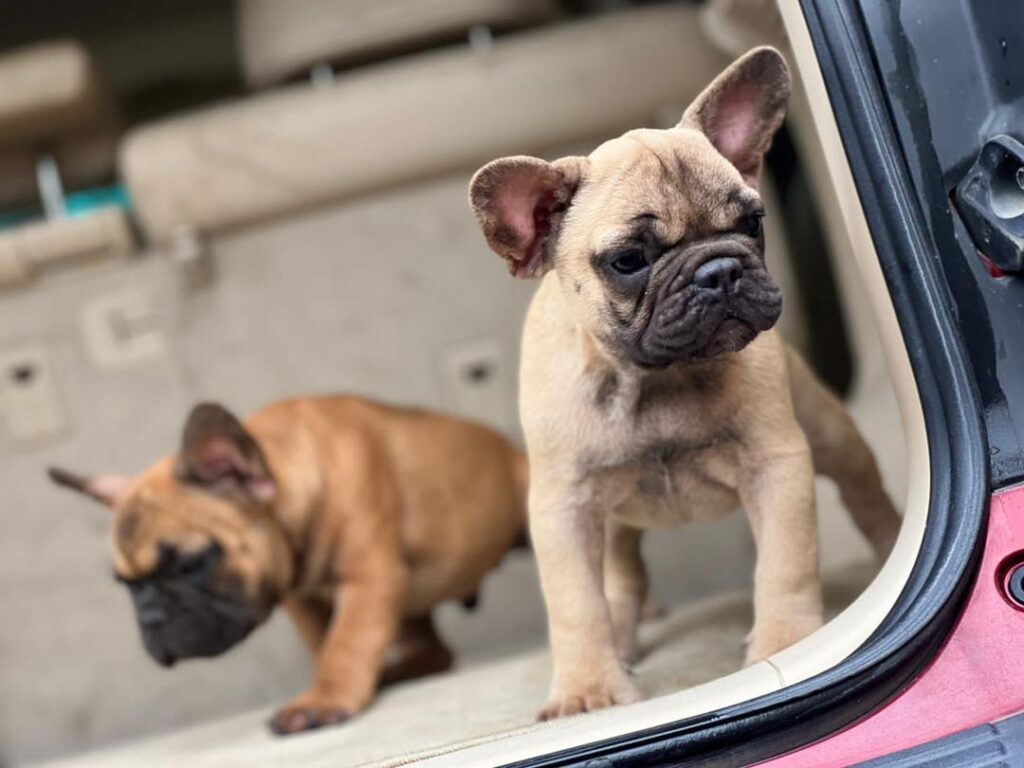Why Does My Dog Growl at me at Night? (Reasons and Solutions)

I want to ask you: Have you ever come out in the night and noticed your dog growling at you? If you have, then I guess I am not alone in this😂. For quite some time now, I have been asking myself this question: “Why does my dog growl at me at night?” Although this is a common problem dog owners face, I wanted a solution to it, or at least to get to know the reasons behind it, so I started making inquiries from professionals and animal behaviorists.
Based on my findings from professional dog trainers and behaviorists, I’ll walk you through some of the reasons behind this nighttime growling, how to tell if your dog is growling out of fear or aggression, and what you can do to prevent it.
Note: This Pawsitive guide is intended for informational purposes only and should not replace professional advice. If you have concerns about your dog’s behavior, consult with a qualified veterinarian or animal behaviorist, just like I did.
Why does my dog growl at me at night?
There are a number of reasons why your dog might growl at you at night. Some of the most common include:
Anxiety or fear
Now, during my interaction with an animal behaviorist on why my dog growls at me at night, he made me understand that the major causes or triggers for this behavior are fear and anxiety. He went further to explain that if my dog experiences fear or anxiety at night, it may perceive certain situations or stimuli as threats. This fear can manifest as growling as it attempts to establish personal boundaries and protect itself.
It may be due to physical discomfort or pain
Another reason your dog may growl at you at night may be due to pain and physical discomfort. During the night, when dogs are resting or sleeping, underlying health issues such as arthritis, dental problems, or injuries may become more pronounced, causing them discomfort. Growling can be their way of expressing pain or discomfort.
Resource guarding
Some dogs exhibit resource guarding behavior, which involves becoming possessive over their belongings, such as food, toys, or even their sleeping spot. If your dog growls at you when you approach their bed or sleeping area, they may be displaying resource guarding behavior. This is their way of protecting what they consider valuable.
Sleep aggression
Another cause of nighttime growling, according to the animal behaviorist, is sleep aggression. Some dogs are simply more aggressive when they’re asleep. This is claimed to be due to the fact that they’re more vulnerable when they’re sleeping, so they feel the need to protect themselves.
Medical conditions
In some cases, nighttime growling can be a sign of a medical condition, such as:
- Injuries or joint issues causing pain
- Ear infections or dental problems
- Age-related cognitive decline or dementia
If you’re concerned that your dog’s nighttime growling might be caused by a medical condition, it’s important to see a veterinarian.
Read also>> Can you put two dog crates next to each other?
How to tell if your dog is growling out of fear or aggression
Understanding the underlying emotions behind a dog’s growling behavior is essential for proper interpretation and response. While growling can be an indication of fear or aggression, it’s important to distinguish between the two to address the issue effectively. Here is an extensive explanation of how to tell if your dog is growling out of fear or aggression:
- Body Language: Pay close attention to your dog’s body language when they growl. Fearful growling is often accompanied by signs of submission and anxiety, such as a lowered body posture, a tucked tail, flattened ears, and avoiding eye contact. On the other hand, aggressive growling is typically accompanied by a tense body posture, raised hackles, direct eye contact, and a stiff tail.
- Vocalization Intensity: The intensity of the growling sound can provide clues about your dog’s emotional state. Fearful growling tends to be softer and higher-pitched, with a trembling or quivering quality. Aggressive growling, on the other hand, is usually deeper and more guttural and may be accompanied by snarling or showing teeth.
- Context of the Situation: Consider the context in which the growling occurs. If your dog growls when they feel cornered, threatened, or in situations that make them uncomfortable, it’s more likely to be fear-based. Aggressive growling, on the other hand, may be directed towards specific triggers, such as resource guarding, territorial disputes, or perceived challenges to their authority.
- Warning Signs: Look for warning signs that may precede the growling behavior. Fearful growling often follows attempts to escape or avoid the perceived threat, while aggression can be preceded by displays of dominance such as stiffening of the body, raised fur, and assertive posturing.
- Response to Approach: Observe how your dog responds when approached during the growling episode. A fearful dog may retreat, cower, or attempt to hide, seeking distance from the perceived threat. An aggressive dog, on the other hand, may hold their ground, display offensive body language, or even lunge forward.
- Past Behavior and History: Consider your dog’s past behavior and any history of aggression or fear-related incidents. If your dog has a known history of fearfulness or has displayed aggressive behaviors in the past, it can help you interpret their current growling behavior more accurately.
- Professional Evaluation: If you are uncertain about your dog’s behavior or struggle to differentiate between fear and aggression, it’s advisable to seek professional guidance. A certified dog trainer, veterinary behaviorist, or experienced animal behaviorist can assess your dog’s behavior comprehensively and provide expert insights into their emotions and motivations.
What to do if your dog growls at you at night
If your dog growls at you during the night, it’s important to respond appropriately to ensure its well-being and maintain a positive relationship. Here’s what to do if your dog growls at you at night:
Remain Calm
It’s crucial to stay calm and composed when your dog growls at you. Avoid reacting with fear, anger, or aggression, as these emotions can escalate the situation further. Take deep breaths, speak softly, and maintain a relaxed body posture to help diffuse tension.
Assess the Situation
Assess the situation to understand the underlying cause of the growling. Consider the context, your dog’s body language, and any potential triggers that may have led to its growling behavior. This assessment will help you determine the most appropriate course of action.
Give Space and Avoid Approaching
If your dog growls at you at night, it’s important to respect its communication and give it space. Avoid approaching them further, as it may escalate their fear or defensive response. Back away slowly and allow it to calm down on its own terms.
Do not Punish or Yell at your Dog
Avoid punishing, scolding, or yelling at your dog for growling. Punishment can worsen its fear or aggression and damage the trust between you and your pet. Remember, growling is a communication method for dogs, and suppressing it without addressing the underlying cause can lead to more serious behavioral issues.
Avoid Reinforcing Fear or Aggression
While it’s essential to respect your dog’s boundaries, it’s equally important to avoid reinforcing its fear or aggression. Avoid comforting it excessively during the growling episode, as it may inadvertently reinforce its belief that growling is an appropriate response. Instead, focus on providing a calm and supportive environment.
Create a Safe Sleeping Environment
If your dog growls at night due to fear or anxiety, create a safe sleeping environment for it. Provide a cozy and secure space, such as a crate or a designated sleeping area, where they can rest undisturbed. Make sure the area is quiet, comfortable, and free from potential triggers that may cause anxiety.
Consult a Professional
If your dog’s nighttime growling persists or escalates, it’s advisable to seek guidance from a professional, such as a certified dog trainer or a veterinary behaviorist. They can assess your dog’s behavior, identify the underlying causes, and provide customized strategies to address the issue effectively.
Implement Behavior Modification Techniques
Working with a professional, you can implement behavior modification techniques to address your dog’s growling behavior. This may include counterconditioning, desensitization exercises, positive reinforcement training, and management strategies to reduce fear and build confidence.
Maintain Consistency and Patience
Resolving growling behavior takes time, patience, and consistency. Follow the guidance provided by professionals and implement training techniques consistently. Be patient with your dog’s progress and celebrate small victories along the way.
Prioritize Safety
While working on addressing the growling behavior, prioritize safety for yourself and others in the household. If you feel unsafe or unable to manage the situation, consult a professional immediately for assistance in ensuring everyone’s well-being.
That’s it on the question: “Why does my dog growl at me at night?” I hope you enjoy the Pawsitive Tips. Don’t forget to share the article on your social media platforms.


